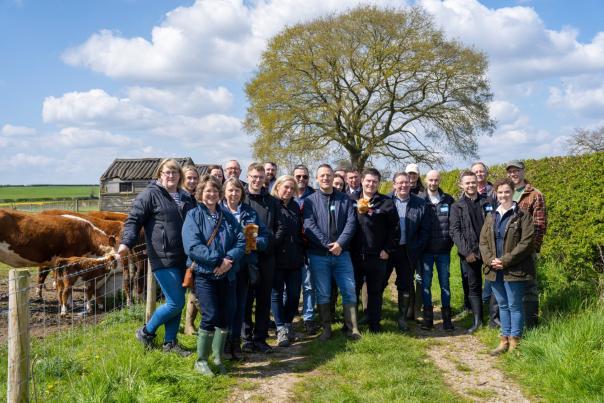
Its key objectives will remain the same, through the channels that have proved successful since the organisation’s formation in 2002. Love British Food is dedicated to making high quality nutritious British food available to all sectors of society.
Love British Food will continue to organise British Food Fortnight, the biggest celebration of British food and drink on the calendar. It will also host a national programme of farm visits for NHS caterers, industry working groups to share knowledge and develop the online platform ‘British Food Fortnight Live’.
Tim Radcliffe, net zero food programme manager for NHS England, and Derek Wright, catering services manager at Blackpool Catering Services will join Love British Food founder Alexia Robinson as directors.
Radcliffe said: “Being asked to be a director of Love British Food is an immense honour and something I accepted in a heartbeat. The challenges of food security, ethical farming and nutritional food is more relevant than ever and these are issues that British farmers are better suited than anyone to deliver on.
“This country produces high quality, affordable produce and we should be immensely proud of our farming heritage. The public sector has a significant part to play by committing to connect farm to fork. We are feeding the nation from cradle to grave and doing it with British produce benefits our local communities. This is an opportunity for all.”
A social enterprise can be defined as a business that trades for environmental and social reasons, not to deliver profit for shareholders but to invest those funds into providing tangible benefit for communities across the country.
Wright added: "Upon being invited to be a volunteer director for Love British Food, I eagerly embraced the opportunity. As a chef I grew up rooted in a farming community, I am enthusiastic about advocating for the use of locally sourced produce in our countryside and the benefits this has not only improves nutrition but our sustainability and local economy.
“Love British Food stands as an outstanding platform for championing our cause. Our distinctive position enables us to champion British food across the broader spectrum of the public sector and within our communities. We reach individuals through schools and other educational institutions, all while bringing the remarkable farmers, producers, and wholesalers to the forefront of what we do.”
On Wednesday 20th March an on-farm working discussion will take place about how public sector providers can work together with farmers to achieve robust supply chains of nutritious food. The visit will take place on Stuart Robert’s farm which specialises in cereal, beef and sheep farming.
The public sector has the potential to be a huge customer for British farming and this event will explain how farmers can sell into it. All the major public sector providers are attending and farmers, wholesalers and food manufacturers are being invited.
Alexia Robinson, Love British Food founder, commented: “I am delighted that Tim and Derek are joining me in this new exciting era for Love British Food. We will have a particular focus on inspiring and enabling robust, quality supply chains in hospitals, care homes, schools and universities.
“Love British Food is established as a promotion in these areas; and while there are pockets of very good work taking place around the country (Birmingham, Yorkshire, the new Cambridge children’s hospital to name a few) there is no national programme to enable a step-change to quality, nutritious food as standard in the public sector.
"We do not believe any Government’s statement of 50% local/sustainable sourcing will achieve much without a true change management programme on the ground.”